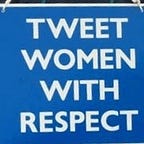By Elizabeth Reed
Ever since Bartolomeo Cristofori replaced those plucking quills inside the harpsichord with felt-covered hammers, keyboardists never looked back. The fortepiano took center stage, crushing the lowly clavichord and its unfortunate relatives. Until the late nineteenth century, if you wanted to hear music you had to provide it yourself. And so began the family tussle of where to put the piano. If you were lucky enough to be born into a royal family, (bonus points if you were female) playing the piano was synonymous with learning another language and embroidering doilies. Famous composers — Bach, Beethoven, Chopin — gave piano lessons and established family trees of students who touted their musical lineage. Teachers often bragged that their teacher studied with Artur Schnabel, who studied with Leschetitzky, who studied with Czerny, who studied with Beethoven. Whoa, Beethoven? Double that lesson fee.
Fortunately, the idea that music is an inherent element of education has continued into the current century. Hordes of little children dream of pounding out the latest Disney movie theme. But to play well, students need a foundation based on resonant tone, fluid technique, rhythmic accuracy and fluent reading. This means — Classical Music Training. If you disagree, ask Billy Joel or Elton John.
